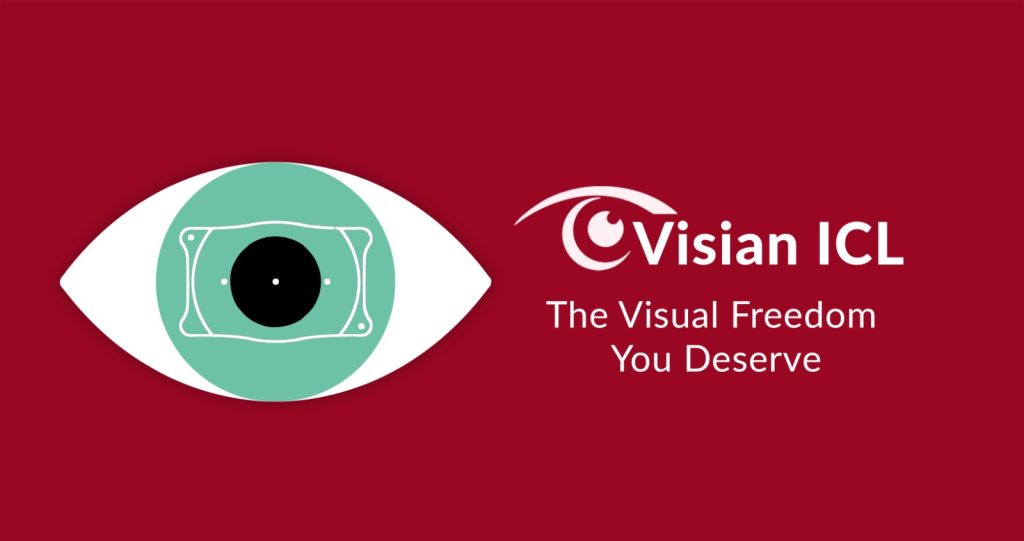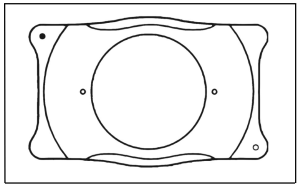ICL
ICL Surgery
ICL surgery, also known as EVO Implantable Collamer or Intraocular Contact Lens surgery, serves as an alternative to LASIK for vision correction. During this procedure, a specially trained eye surgeon permanently implants contact lenses into your eyes.
When is ICL surgery recommended? If you’re nearsighted, meaning you can see objects close to you clearly but struggle with distant vision, corrective treatment may be necessary. Options include glasses, contact lenses, LASIK, or ICL surgery. The suitability of treatment options depends on the severity of your nearsightedness. While minor cases can often be managed with glasses or contacts, LASIK may not be suitable for everyone, making ICL surgery a viable alternative for those who prefer not to rely on glasses or contacts.

There are two main types of ICL surgery:
1. ICL Soft Lens:
This type of lens is made from a flexible polymeric material that resembles the collagen found in the cornea, reducing the risk of adverse reactions.
During the procedure, the surgeon makes a small incision in the cornea and inserts the ICL between the iris and the natural lens. Stitches are typically not required.

2. Intraocular Lens:
This variation of ICL surgery is tailored for patients with severe nearsightedness who may not be candidates for LASIK. The lens is placed between the cornea and the iris to improve the eye’s focusing ability.
Surgeons use tiny stitches to close the incision to ensure the lens stays in place. However, with this type of lens, overall function may decrease with age, and patients may require reading glasses later in life. If a patient with an intraocular lens develops cataracts, the lens must be removed for corrective surgery.

Both types of ICL surgery preserve the eye’s natural lens, enhancing vision without the need for removable glasses or contacts.
Is ICL Surgery Permanent?
In most cases, yes. However, it is possible to remove the lenses, but this requires another surgery. If you opt to have the lenses removed after ICL surgery, your vision may worsen compared to before the surgery, as eyesight may require additional correction over time.
Are There Risks to ICL Surgery?
Like any medical procedure, ICL surgery carries risks. Discuss the pros and cons with your eye doctor before making a decision.
- Vision loss: There's a possibility that your vision may worsen following ICL surgery, and implanting lenses may not be successful or could further damage your eyesight.
- Changes in vision: Patients may experience double vision, halos, glare, or difficulty seeing clearly in low light after ICL surgery.
- Additional surgery: If the initial ICL surgery is unsuccessful or if the lens is off-centre or moves out of place, another surgery may be necessary to adjust or replace the lens.
- Uncertain results: While many aim for perfect 20/20 vision, this outcome isn't guaranteed. Vision may improve but not meet expectations, requiring reading glasses or contact lenses for optimal vision. In some cases, another surgery may be needed if the lens strength isn't suitable.
- Pressure: Some patients may feel pressure in or behind their eyes after surgery, which may require medication. Excessive pressure can potentially impact vision permanently.
- Retinal detachment: Eye surgery can lead to retinal detachment, where the tissue at the back of the eye that senses light becomes disconnected.
- Infection: Eye pain following surgery could indicate an infection. While soreness and discomfort are common, most people recover quickly from ICL surgery. Any concerns such as pain, redness, swelling, or inflammation should be addressed with your doctor.
Despite these risks, ICL surgery can be a suitable option for many experiencing poor vision. Your doctor can determine if you’re a suitable candidate for the procedure.
Frequently Asked Questions
This retrospective study revealed that ICL implantation was safe and effective for five years or more. The safety and effectiveness indices were 1.01 and 0.99, respectively. The ICL placement in the eye was considerably stable.
ICL eye surgery is done with a local anesthetic, eyedrops, to numb the eyes. No shot or injection is required. Yes, while this means that you are awake during the procedure, there is no pain, and patients are very comfortable throughout ICL surgery.
At Envision Lasik Centre, we weave precision, safety, and unparalleled patient care into the fabric of every vision journey, guaranteeing a seamless and triumphant experience for all. Rely on us for avant-garde technology, seasoned surgeons, and a steadfast dedication to illuminating lives with crystal-clear vision.

Customer Service
- Contact Us
- Shipping
- Secure Payments
- FAQ
About Ficon
- Founder
- Follow Us
- Careers
- Our Network
Legal
- Terms & Conditions
- Cancellations and Refunds
- Privacy Policy
- Disclaimer

